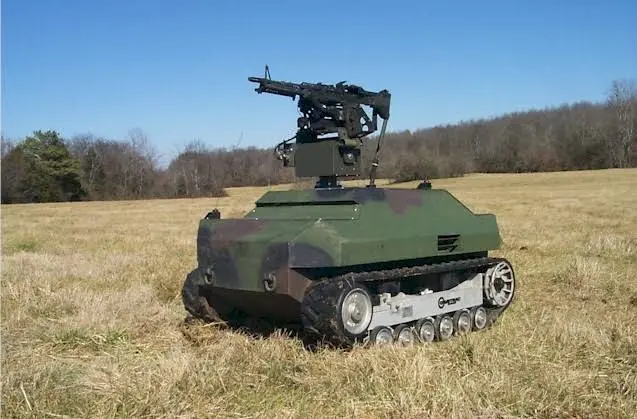By Sylvester Thompson
A military scientist, Col. Abubakar Imam, says high risk mission could be better handled with Unmanned Ground Vehicles (UGVs).
Imam leads a team of technologists and researchers on ground-breaking work in robotics and mechatronics at the Nigerian Defence Academy.
Speaking in an interview in a news podcast, Global South Pole, Imam explained that UGVs allow militaries to confront high-risk environments without exposing troops, while also multiplying their battlefield strength.
According to him, UGVs can detect Improvised Explosive Devices (IEDs), and ambushed areas, thereby protecting troops from being endangered.
He said many UGVs serve more than what human beings could do because they could undertake multiple functions.
The News Agency of Nigeria (NAN) reports that across Africa’s changing security environment, UGVs are transforming military responses to threats.
They are used for detecting explosives, delivering supplies, and simulating combat situations, serving as force multipliers that safeguard soldiers, and enhance operational capabilities in a robotics-powered landscape.
Recently, Nigeria’s military has increasingly involved UGVs and other autonomous systems, with Terrahaptix Company producing UGV models that have received media attention.
The Federal Government inaugurated the Advanced Unmanned Aerial Vehicles Laboratory, a facility designed to drive innovations in drone technology aimed at enhancing national security and agricultural productivity.
The ceremony, held in Abuja, was attended by top officials in the space and technology sectors, including the former Minister of Innovation, Science and Technology, Chief Uche Nnaji.
Nnaji said the significance of the laboratory was a crucial step in advancing Nigeria’s capabilities in unmanned aerial systems, or drones.
He emphasised that the lab would contribute to a wide range of applications, including monitoring security threats, tracking agricultural outputs, and improving revenue collection.
“This lab will help us monitor gas leakages, detect pipeline vandalism, and enhance revenue generation by monitoring ships entering the country,” Nnaji said.
The former minister further said that no fewer than 80 per cent of ships that come into Nigeria did not pay required fees because the country lacked the means to effectively monitor them.
“ But with satellites and drones, we will be able to see all these things,’’ he said.
Nnaji said the lab also aimed to address challenges in precision agriculture. (NAN)
Edited by Uche Anunne












